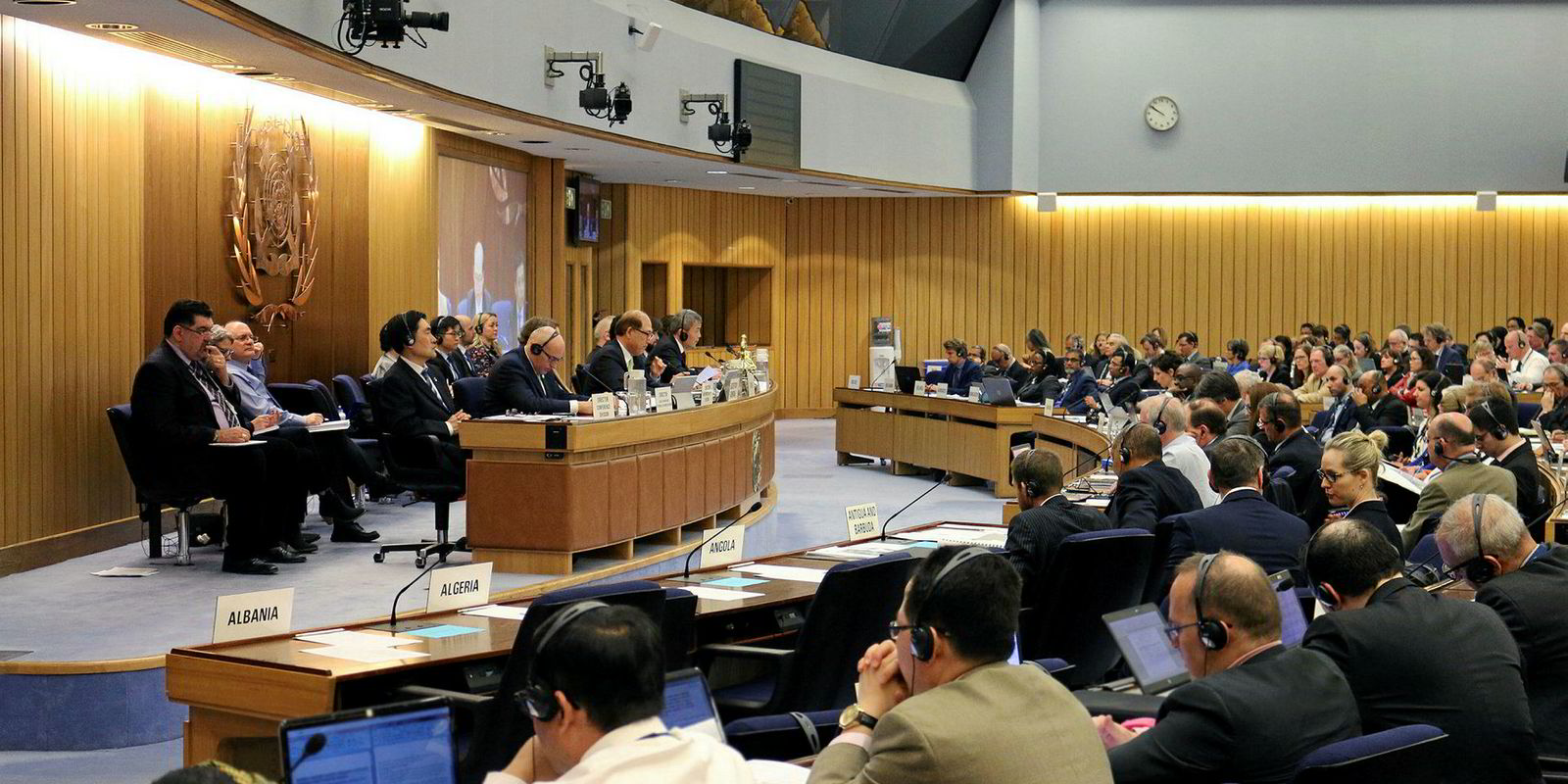The IMO meets this week to consider revisions to its coatings convention that could hit shipowners in the pocket.
While the focus of the London meeting is on curbing carbon emissions, a more immediate threat to shipowners comes from potential amendments to the anti-fouling treaty that could force thousands of shipowners to recoat their vessels’ hulls.
The proposed changes to the International Convention on the Control of Harmful Anti-fouling Systems in Ships (AFS Convention) are up for approval by the regulator's Marine Environmental Protection Committee.
Remove and replace
If approved, owners will be forced to remove and replace vessel coatings if they contain the anti-fouling chemical compound cybutryne, which prevents the growth of algae.
Following a proposal from the 28 member states of the European Union, a draft amendment for the revisions has been put in front of regulators.
Under the proposal, ships will not be allowed to apply or reapply coatings containing cybutryne after October 2021.
It will also require ships to remove, or apply sealant to, coatings containing cybutryne at the first dry-docking after October 2026.
The proposal has largely progressed without objection. Japan is the only country that is challenging the move.
Japanese officials say no one knows how many vessels are currently trading with cybutryne coatings, or the potential impact of removing them.
Japan is of the view that retrospective requirements to mandate blasting or sealer coatings to all ships that have applied the anti-fouling system in the past needs further careful consideration
Japanese submission to the IMO
There is also no approved sealant that is proven to make cybutryne watertight, they add, nor indication of how long cybutryne remains in the coatings for, or if it dissipates over time.
Environmental concern
Japan also says the blasting process to remove coatings can be harmful to the environment.
So, while it is backing the ban on the use of cybutryne after 2026, Tokyo is opposing its removal from existing ships.
In its submission officials said: “Japan is of the view that retrospective requirements to mandate blasting or sealer coatings to all ships that have applied the anti-fouling system in the past needs further careful consideration with more concrete information, while supporting the immediate prohibition of applying and reapplying anti-fouling systems containing cybutryne.”
The AFS Convention was adopted in 2001. It was intended to remove harmful toxins from marine coatings and was aimed at ending the use of tributyltin, or TBT.





